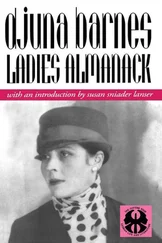‘Only the scorned and the ridiculous make good stories,’ he added angrily, seeing the habitues smiling, ‘so you can imagine when you’ll get told! Life is only long enough for one trade; try that one!’
An unfrocked priest, a stout pale man with woman’s hands, on which were many rings, a friend of the doctor’s, called him and asked him to have a drink. The doctor came, carefully bringing his umbrella and hat. The priest said: ‘I’ve always wanted to know whether you were ever really married or not.’
‘Should I know that?’ inquired the doctor. ‘I’ve said I was married and I gave the girl a name and had children by her, then, presto! I killed her off as lightly as the death of swans. And was I reproached for that story? I was. Because even your friends regret weeping for a myth, as if that were not practically the fate of all the tears in the world! What if the girl was the wife of my brother and the children my brother’s children? When I laid her down her limbs were as handsome and still as two May boughs from the cutting—did he do as much for her? I imagined about her in my heart as pure as a French print, a girl all of a little bosom and a bird cage, lying back down comfortable with the sea for a background and a rope of roses to hold her. Has any man’s wife been treated better than that? Who says she might not have been mine, and the children also? Who for that matter’, he said with violence, ‘says they are not mine? Is not a brother his brother also, the one blood cut up in lengths, one called Michael and the other Matthew? Except that people get befuddled seeing them walk in different directions? Who’s to say that I’m not my brother’s wife’s husband and that his children were not fathered in my lap? Is it not to his honour that he strikes me as myself? And when she died, did my weeping make his weeping less?’
The ex-priest said, ‘Well, there’s something in that, still I like to know what is what.’
‘You do, do you?’ said the doctor. ‘Well then, that’s why you are where you are now, right down in the mud without a feather to fly with, like the ducks in Golden Gate park—the largest park in captivity—everybody with their damnable kindness having fed them all the year round to their ruin because when it comes time for their going south they are all a bitter consternation, being too fat and heavy to rise off the water, and, my God, how they flop and struggle all over the park in autumn, crying and tearing their hair out because their nature is weighed down with bread and their migration stopped, by crumbs. You wring your hands to see it, and that’s another illustration of love; in the end you are too heavy to move with the greediness in your stomach. And’, said the doctor, ‘it would be the same with me if I’d let it, what with the wind at the one end and the cyclone at the other. Yet there are some that I have neglected for my spirit’s sake—the old yeomen of the Guard and the beefeaters of the Tower because of their cold kidneys and gray hairs, and the kind of boy who only knows two existences—himself in a mirror—back and front.’ He was very drunk now. He looked about the café. He caught someone nudging someone. He looked up at the ex-priest and cursed. ‘What people! All queer in a terrible way. There were a couple of queer good people once in this world—but none of you,’ he said, addressing the room, ‘will ever know them. You think you are all studded with diamonds, don’t you! Well, part the diamonds and you’ll find slug’s meat. My God,’ he said, turning around, ‘when I think!’ He began to pound the table with his glass. ‘May they all be damned! The people in my life who have made my life miserable, coming to me to learn of degradation and the night. Nora, beating her head against her heart, sprung over, her mind closing her life up like a heel on a fan, rotten to the bone for love of Robin. My God, how that woman can hold on to an idea! And that old sandpiper, Jenny! Oh, it’s a grand bad story, and who says I’m a betrayer? I say, tell the story of the world to the world!’
‘A sad and a corrupt age,’ the ex-priest said.
Matthew O’Connor called for another drink. ‘What do they all come to me for? Why do they all tell me everything then expect it to lie hushed in me, like a rabbit gone home to die? And that Baron Felix, hardly muttered a word in his life, and yet his silence breeds like scum on a pond; and that boy of his, Guido, by Robin, trying to see across the Danube with the tears in his eyes, Felix holding on to his hand and the boy holding on to the image of the Virgin on a darkening red ribbon, feeling its holy lift out of the metal and calling it mother; and me not even knowing which direction my end is coming from. So, when Felix said to me, “Is the child infirm?” I said, “Was the Mad King of Bavaria infirm?” I’m not one to cut the knot by drowning myself in any body of water, not even the print of a horse’s hoof, no matter how it has been raining.’
People had begun to whisper and the waiters moved closer, watching. The ex-priest was smiling to himself, but O’Connor did not seem to see or hear anything but his own heart. ‘Some people’, he said, ‘take off head-first into any body of water and six glasses later someone in Haarlem gets typhoid from drinking their misery. God, take my hand and get me up out of this great argument—the more you go against your nature, the more you will know of it—hear me, heaven! I’ve done, and been everything that I didn’t want to be or do—Lord, put the light out—so I stand here, beaten up and mauled and weeping, knowing I am not what I thought I was, a good man doing wrong, but the wrong man doing nothing much, and I wouldn’t be telling you about it if I weren’t talking to myself. I talk too much, because I have been made so miserable by what you are keeping hushed. I’m an old worn out lioness, a coward in my corner, for the sake of my bravery I’ve never been one thing that I am, to find out what I am! Here lies the body of Heaven. The mocking bird howls through the pillars of Paradise, oh, Lord! Death in Heaven lies couched on a mackerel sky, on her breast a helmet and at her feet a foal with a silent marble mane. Nocturnal sleep is heavy on her eyes.’
‘Funny little man,’ someone said, ‘never stops talking—always getting everyone into trouble by excusing them, because he can’t excuse himself—the Squatting Beast, coming out at night’—as he broke off, the voice of the doctor was heard: ‘And what am I? I’m damned, and carefully public!’
He fumbled for a cigarette, found it and lit it.
‘Once upon a time, I was standing listening to a quack hanky-panky of a medicine man saying: “Now, ladies and gentlemen, before I behead the small boy, I will endeavour to entertain you with a few parlour tricks.” He had a turban cocked over his eye and a moaning in his left ventricle which was meant to be the whine of Tophet, and a loin-cloth as big as a tent and protecting about as much. Well, he began doing his tricks. He made a tree grow out of his left shoulder and dashed two rabbits out of his cuffs and balanced three eggs on his nose. A priest, standing in the crowd, began to laugh, and a priest laughing always makes me wring my hands with doubt. The other time was when Catherine the Great sent for me to bleed her. She took to the leech with rowdy Saxon abandon, saying: “Let him drink, I’ve always wanted to be in two places at once!"’
‘For heaven’s sake,’ the ex-priest said. ‘Remember your century at least!’
For a moment the doctor looked angry. ‘See here,’ he said, ‘don’t interrupt me. The reason I’m so remarkable is that I remember everyone even when they are not about. It’s the boys that look as innocent as the bottom of a plate that get you into trouble, not a man with a prehistoric memory.’
Читать дальше












